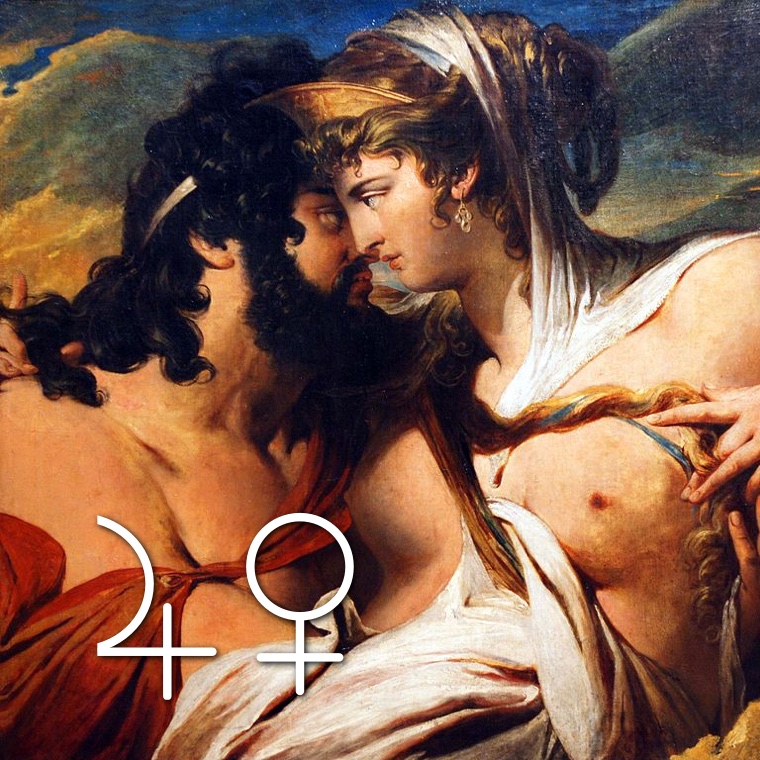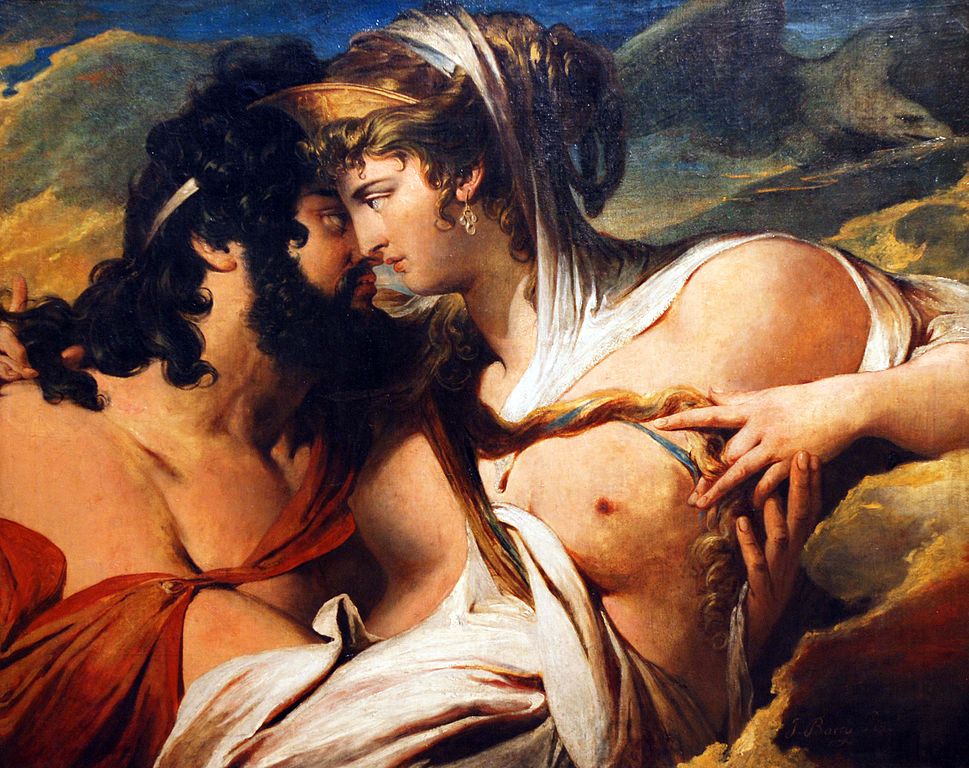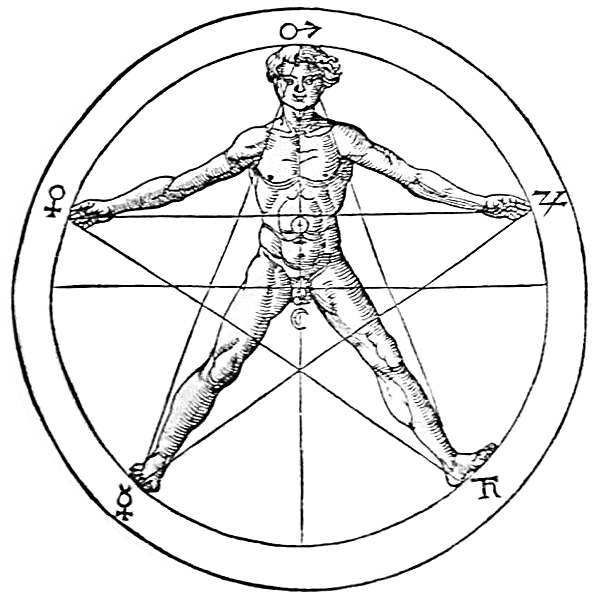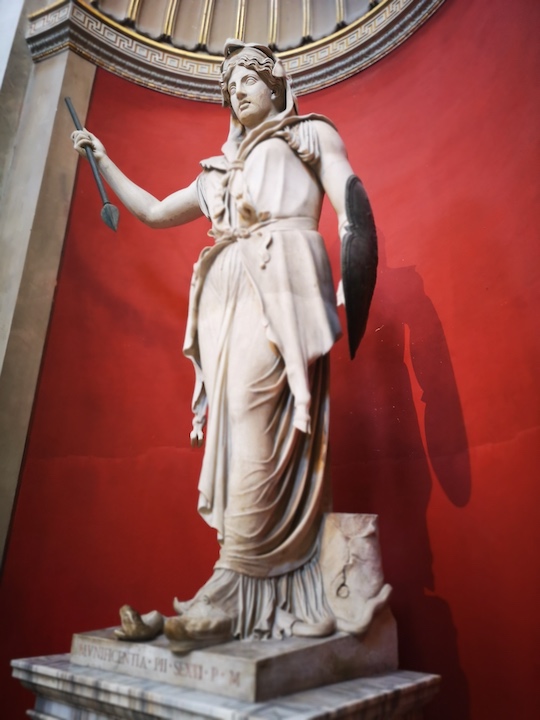An archetype of love triangle, or why Jupiter and Venus always in love

Love triangle is a notorious pattern in human relationships that actually has deeper roots that one may think. The infamous triangle originates from the ancient mythology and has been a rich source of provocative depictions in art and culture.
Love triangle is a notorious pattern in human relationships that actually has deeper roots that one may think. The infamous triangle originates from the ancient mythology and has been a rich source of provocative depictions in art and culture.
This story is about a kind of attraction that tends to form love triangles. One may think that Mars-Venus, the usual suspect, is to blame for the most of trouble.
We would argue that it’s not as often the case as it may seem. Another mechanism of attraction, that belongs to the domain of Jupiter-Venus, forms the foundation for the formation of love triangles.
Jupiter-Venus love triangle is a dynamic interplay between the forces of power and passion. Passion and power are the two primal principles that move men and women on this planet.
Actually, passion and power move the gods themselves…
The myth of the Greek gods
As the myth goes, the king of the gods, Zeus (or Jupiter in ancient Roman culture) married Hera (or Juno in ancient Roman culture). Hera became the queen of the gods and that should have been a happy ending but… there were a few problems.
Before continuing, a small note about the gods. It is convenient for the story telling to portray the gods as a kind of better version of human beings having a human form and shape. But that’s only for the convenience of storytelling, the gods are really closer to cosmic principles. They don’t have legs or other body parts. Instead they can be perceived as large scale forces with particular profiles that constitute the cosmos.
But for the convenience of mythological storytelling it makes sense to give them bodies and characters, just so that we can relate to them better.
Zeus is traditionally represented by planet Jupiter which carries astral forces and qualities that to some extend embody the Zeus force.
The Western cosmology predominantly originates from the ancient Greek writings. One of the fundamental bodies of work is Theogony written by Hesiod, an ancient Greek “poet” (but rather a scholar) who lived around 750-650 BC.
According to Theogony, both Zeus and Hera were children of the same father, Kronos (or Saturn in ancient Roman culture). This means that in the human parlance they were siblings, or a brother and a sister. Of course this is a gross oversimplification as the gods gender is an imaginary nature.
Apart from Zeus and Hera, Kronos had many children that he kept captive until Zeus staged a rebellion, overthrown Kronos and liberated his other captive siblings. Eventually the gods won a gigantic cosmic battle against the Titans (and that’s another story) and seized the cosmic rulership.
Zeus and Hera became the king and the queen of the Olympus and ruled all other Olympian gods. Being of the same nature and “profile” allowed them to rule sustainably and efficiently.

But their relationship didn’t proceed smoothly.
True to his expansive nature, Zeus liked to date different goddesses and his love affairs became a big and painful problem for Hera, who albeit being of a queenly stature, wasn’t exactly a sex symbol. Hera is associated with protection of marriage, childbirth and life in general.
Sexual attraction comes from another force of nature embodied by Aphrodite (or Venus in ancient Roman culture). As we all know, all things beautiful, attractive and desirable come from the domain of Venus.
The myth of the gods provides us with an archetype of Hera-Zeus-Venus power triangle with its energies forever oscillating between stability, power and passion.
Marriage is both power and insurance
Descending from the world of the gods to the earthly plane, one can discover that what is true for the gods is equally true for the humans.
Back in the old (and very old) days each individual had to ensure their future wealth, health and survival by forming strategic type of partnership that later became known as marriage.
Until very recent times the very idea of “marriage for love” was a recipe for a potential disaster inviting misfortune and financial ruin. For centuries, marriages were traditionally moderated and organised by parents and other interested parties.
We need to remind ourselves that the modern society that warrants a certain level of decency of life has started to take shape very recently, around 1900s. Before that time there weren’t many social institutions that could protect a human individual from things like loss of wealth and health – monasteries were perhaps the only places where dignity would have been preserved, to certain extent.
Insurance companies were around for some time but taking out a life-sustaining insurance was (and still is) only feasible for individuals with a substantial income.
Thus for many many centuries the only way to protect one’s future was to invest oneself in a strategic partnership that would last for decades to come. Bringing up children was everybody’s insurance policy as the next generation was supposed (and strongly culturally indoctrinated) to look after their elderly parents. “I have invested in bringing you up so that you will look after me when I am weak and frail” was the driver for the growth of population and economy.
Do you recognise the Hera principle in that? Stability of marriage, stability of life, procreation through children ensuring future care and comfort.
Countless cultures on the Earth have been woven by the myriad of partnerships that were designed primarily for support and stability.
Here comes Venus
When the marriage is formed on the basis of strength and life insurance, passion is the last thing that comes to mind.
Surely, there are lots of popular stories about harmonious marriages but it’s more likely that they became an “acquired taste” rather than were formed through Romeo and Juliet kind of passion.
The Aphrodite (or Venus in ancient Roman culture) embodies the principles of beauty, passion and attraction through desire that are the fundamental building blocks of human nature.
An interesting mythological fact is that Aphrodite was born before Zeus was born. Aphrodite was a side-product of Kronos (Zeus’ father) castrating his own father Ouranos (Uranus): she has emerged out of the sexual organs of Ouranos after they were thrown into the ocean.
This puts Aphrodite in a very special and powerful position of holding the keys to passion, beauty and the principle of human creativity in the broadest meaning.
Power and passion like to stick together
In every person’s life there are two major forces of attraction that act at the primal level:
- power attracted to power
- power attracted to passion and beauty
- beauty needs power to express itself
The “power and passion” of Jupiter-Venus magnetism is the principle that shaped so many works of art and culture.
Debunking the Mars-Venus myth
Mars-Venus attraction is also very strong but it is of a rather short-lived nature. Mars-Venus archetype expresses the combustible side of passion that flares quickly but doesn’t go much further.
Mars-Venus romances are not even expected to last, that’s a very common experience of anybody who experienced one or two episodes of Mars-Venus romantic flarings.
Power and sexuality, the two sides of human nature
The planetary force of Jupiter speaks size and broadness. When supported by other aspects, it becomes a powerful magnet that attracts a jupiterian kind of admiration.

The illustration above — taken from Three Books of Occult Philosophy by Heinrich Cornelius Agrippa — depicts a man projected onto the occult symbolism of a five-pointed star, a pentagram.
Notice how each of the star’s vertices is assigned a planet. It is revealing to find Venus and Jupiter placed at the left and right hands correspondingly. The two hands used by every human being for doing things in the world are ruled by Jupiter and Venus.
Mars, which rules the sign of Aries, presides over the head and represents the sharpness of mind and agility of human consciousness.
Mercury and Saturn are assigned to the right and left foot correspondingly. Mercury is the symbol of continuous movement and change. Saturn provies the context for interaction with the physical world made of matter and imposing limits.
Venus resonates with size and power. Venusian beauty likes to be empowered and amplified. Venusian creativity naturally merges with jupiterian expansion. It’s the match that is sustainable… until Hera enters the scene and re-arranges the circumstances towards stability and future.

A daughter of Saturn, she is the wife of Jupiter and the mother of Mars, Vulcan, Bellona and Juventas.
In the culture of the Roman Empire, Juno was the protector and counselor of the state.
Juno was a member of the Capitoline Triad, centered on the Capitoline Hill in Rome. The Triad consisted of her, Jupiter, and Minerva, goddess of wisdom.
Juno is the Roman goddess of love and marriage.
In the end stability wins
The force of stability, Hera, wins long-term most often that not. She may experience a number of setbacks along the way but longevity and anything life-long is her uncontested domain. Hera is the ultimate insurance company that is based on free choice and conscious commitment.
That’s why Hera and Zeus are bound together — bound to rule over life.
3 Comments
Claudio
I love the way you make it simple to read brother. Thanks!
CC
Enjoyed this post! Thank you!
My Jupiter is the Midpoint of:
If there are further articles regarding the importance of MidPoints, I personally would enjoy learning further on this topic…. As well as seeing this as a configuration with your App!
Lastly, I use this App the very most of all the other astrological apps out there > Keep up the good work and additions, it’s been SUCH a useful tool for learning and practicing Astrology :)
Jeremiah Bradbury
Weird how I left my wife on that day because of her cheating!!!im on the path I’m supposed to be on I guess!! Not happy about it..wow